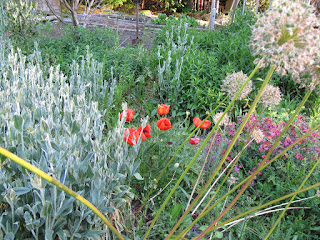Rabbi Jonathan Sacks in his book "Not in God's Name" looks into the phenomena of killing for the sake of religion and religious extremism. While some believe that we have to get rid of religion because of this Sacks puts the blame not in religious tradition but in the human heart - which he points out, is the most deadly weapon of mass destruction.
While I haven't read the book I did listen to the whole hour of Tapestry when Sacks was interviewed. I was taken by his expressed reverence for life, by his tolerance of different view points including atheism.
As a scholar he is able to articulate the ages where humanity left God and pursued "the will to power". He pointed out that although we live in nature we have evolved to a consciousness of our effect on nature. Therefore power cannot be separated from responsibility without us losing our humanity? Is this what Sacks means by our relationship to God? It's probably deeper than my interpretation.
I tend to see religion as having been misused to preach the supremacy of an institution, a race, a gender. When a religion becomes a mass movement the ruling elite re-interpret the doctrine in favour of consolidating their own power and their position. In listening to Sacks I understood that this misrepresentation is mostly due to our human tendency to put our selves into the centre of all things.
All stories are about how the narrator views him or herself as the interlocutor of meaning, and the many ways in which they are tripped up, thrown off their path of righteousness. However, it is too late to interview Abraham, Jesus or Muhammad, so we have to find the wisdom in our doubts and experiences, to retrieve meaning. The thing is we are so often wrong, we are limited, and our views must be fed with new information and examined. And what about God?
I think the key point in Rabbi Sacks' interview is that we are in relationship to a higher power. God does not control me because I have free will, therefore anything I choose to do can be for the good of this planet and my community but I cannot claim to know what God thinks.
A way in which we might move beyond our own obsession with power is to understand that life and truth is beyond the time and place our small lives inhabit. The clamor of extremism and a shallow fundamentalism is due to the arrogance of our species to think we have the hotline to the universe.
Religions who preach chauvinism of any kind pander to the vanity and fears of its congregation and so remove us from the whole story. Ideology that demands obedience to a certain doctrine cuts off our dialogue with the unfolding universe.
Our task is to be human, to think, to feel, to speak, to listen, and to love life, even though we don't know the outcome or the ending. Does this mean we can't help but create stories on the beginning and the end as all religions do?





